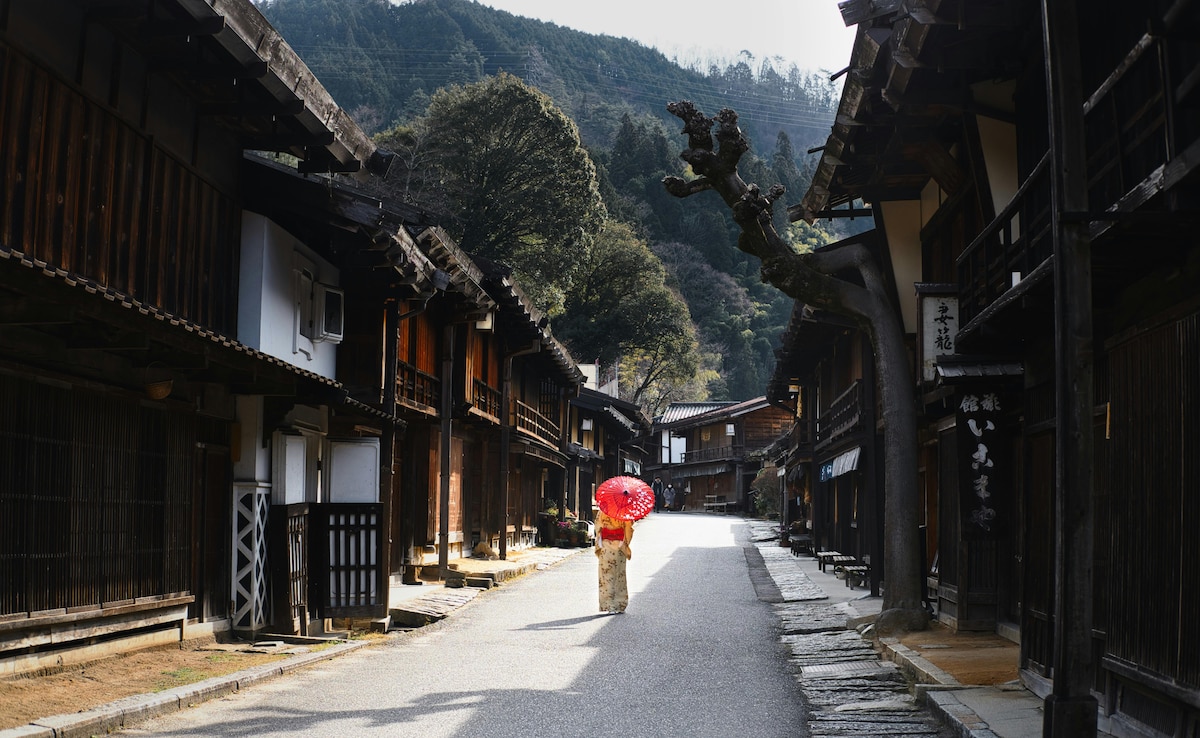
- Japan’s culture emphasizes respect, mindfulness, and social harmony for all interactions
- Tipping is not practiced in Japan; gratitude is shown through bows and polite phrases
- Queueing is orderly and quiet, with clear floor markings guiding where to stand
Japan Travel Tips: Planning a trip to Japan? You are in for a cultural experience that feels precise, peaceful and quietly fascinating. From the moment you arrive, you will see how smoothly everyday life runs. Trains arrive exactly on time, streets remain spotless, and polite bows replace loud chatter. Beneath this calm order is a set of social codes that shape how people interact. Some of these rules are written, many are unwritten, and all reflect deep respect. Japan does not expect visitors to know everything instantly, but sincerity matters. Even small gestures of good manners can help you feel more included, welcomed and at ease throughout your travels.
Before imagining cherry blossoms, vending machines and bowls of steaming ramen, here are some essential etiquette rules that will help you feel more confident and connected in Japan.
Also Read: 14 Bizarre Visa Questions That Travellers Have Actually Faced Globally
Understanding Japanese Etiquette Rules For Travel:
Japanese culture values respect, mindfulness and harmony with others. For many Indian travellers, where conversation is lively and warmth is expressed immediately, Japan's quiet courtesy can feel different yet refreshing. A little attention to these everyday customs not only supports smoother travel but also shows locals that you understand and value their way of life. This connection makes each moment in Japan more meaningful, from a peaceful train ride to a simple cup of tea shared with kindness.

Japan Travel Tips: 7 Written And Unwritten Rules Tourists Often Miss
1. No Tipping In Japan
This rule surprises many visitors who come from countries where tipping is expected. In Japan, leaving money for waiters or offering cash to a taxi driver can cause discomfort, because good service is already included in the job. Professional pride comes from doing things well, not from receiving extra money. If you wish to show gratitude, a polite bow, a warm smile or saying "Arigatou gozaimasu" (thank you very much) goes a long way.
Pro tip: In smaller towns or homestays, a thoughtful gift from India, such as Darjeeling tea, Mysore sandal soap or traditional sweets, is always appreciated.
2. Queue Like A Local
Order matters in Japan. Whether it is a busy Tokyo station or a small ramen shop in Kyoto, people line up quietly and wait their turn. Nobody pushes and nobody jumps ahead. Floor markings show exactly where to stand, and everyone follows them. For Indian travellers familiar with more energetic queues, this calm system can feel surprisingly pleasant and fair.
Unwritten rule: If you are travelling in a group, stay close together and avoid blocking the way for others. Respecting shared space is central to daily life in Japan.
Also Read: No Gum, No Heels, No Pooh: 20 Strange Travel Laws You Need To Know Before Flying Abroad
3. Do Not Eat While Walking
Food deserves attention in Japan. Eating while walking is considered careless because it can lead to spills and litter. Locals usually enjoy street food right beside a stall or while seated on a nearby bench, even if the snack is small.
Exceptions: Tourist areas such as Osaka's Dotonbori or Harajuku's crepe stands may feel more relaxed, but even there, most people use designated areas to finish their treats before moving on.
4. Stay Quiet On Public Transport
Silence is a sign of courtesy. On the Shinkansen (bullet train) and other public transport, people keep conversations soft and phones on silent mode, known as "manner mode". For Indian travellers used to lively buses and trains, the quiet can feel refreshing and even meditative.
Unwritten rule: Wear your backpack in front or place it on a rack to prevent bumping into others. It is a small gesture that shows awareness and respect.
5. Shoes Off Indoors In Japan
If you come from an Indian home where shoes are removed at the door, this rule will feel familiar. In Japan, shoes must come off at homes, temples, ryokans (traditional inns) and some restaurants. The entrance, called genkan, will have indoor slippers provided. There are also separate slippers kept only for the toilet, and switching them is expected.
Unwritten rule: Never walk on tatami mats in slippers. Go barefoot or wear socks, because tatami holds cultural value and needs careful handling.
Also Read: 5 Mistakes To Avoid In Japan As A Tourist

6. Respect Personal Space
Japan may have some of the busiest cities in the world, yet they rarely feel chaotic. People naturally keep distance, avoid touching and maintain calm body language. Public displays of affection are limited, not from coldness, but from respect for those nearby. Even during peak hours, you will notice quiet cooperation with no impatience.
Unwritten rule: If someone steps aside or gives you space, understand it as a gesture of politeness. This quiet consideration is a vital part of Japan's social harmony.
7. Learn Simple Japanese Phrases
Fluency is not required, but effort is admired. Locals appreciate when travellers attempt small phrases, making interactions smoother and friendlier.
Useful phrases:
- Konnichiwa - Hello
- Sumimasen - Excuse me or Sorry
- Arigatou gozaimasu - Thank you very much
- Eigo o hanasemasu ka? - Do you speak English
- Oishii - Delicious
Quick tip: A small bow shows respect. You can think of it as Japan's version of Namaste.
Bonus Rule: Avoid Pointing
Pointing directly at people or things is considered rude. Instead, gesture using your whole hand with the palm facing upwards. It is a tiny detail that reflects Japan's thoughtful communication style.
Also Read: How Indian Travellers Can Apply for A Japan Visa In 2025
Practical Japan Travel Tips For First-Time Visitors:
These simple habits will make navigating Japan smoother:
- Always carry some cash since smaller shops may not accept cards.
- Keep a reusable bag, as supermarkets often charge for plastic.
- Dispose of rubbish carefully. Public bins are limited, so carry a pouch for waste.
- Purchase an IC card such as Suica or Pasmo for quick travel payments and vending machines.
- Use a translation app to help with signs or menus when needed.
These mindful steps not only simplify travel, they show genuine respect for local systems. Respect is always noticed in Japan.
Also Read: 7 Must-Visit Hidden Gems In Japan You've (Probably) Never Heard Of

Final Thoughts: Respect And Gratitude Make Travel Better
Japan is one of the most welcoming and thoughtful places to visit, known for efficiency, detail and courtesy. The key to enjoying Japan fully is mutual respect. Visitors are not expected to be perfect, but curiosity and willingness to adjust make the experience far more meaningful. The deepest joy of travelling here is not only what you see but the quiet and respectful way you experience it. By honouring these etiquette rules, you leave with memories that feel deeper than picture-perfect moments.
Track Latest News Live on NDTV.com and get news updates from India and around the world

